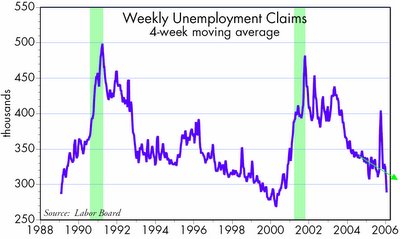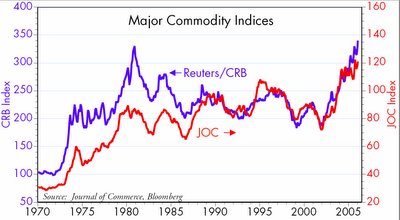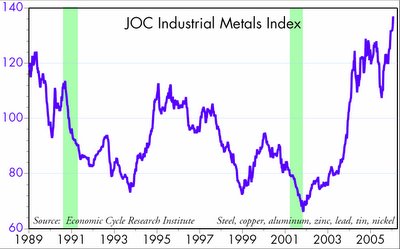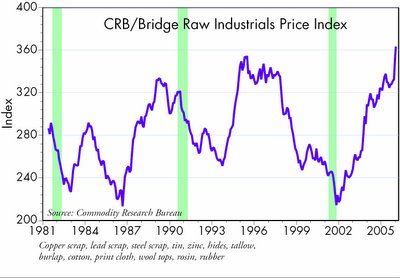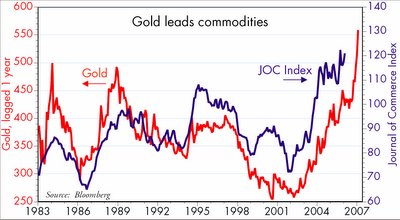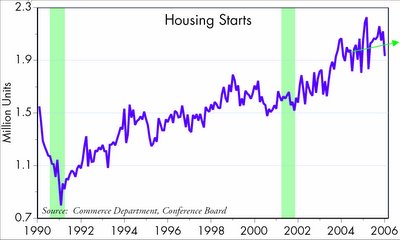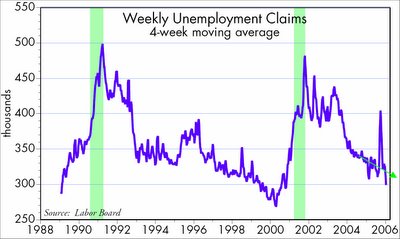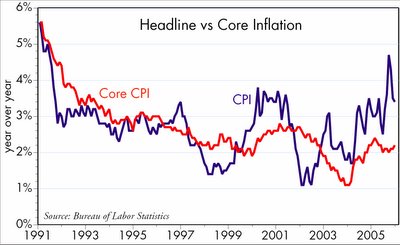Hamas and A Wall of Many Other Worries
-- David M Gordon / The Deipnosophist
Hamas and A Wall of Many Other Worries
It took Nixon to go to China. That bit of bumper sticker wisdom reverberated in my head as I read of the apparently surprising victory by Hamas in last week’s Palestinian elections. If a staunchly anti-communist American president could make an opening to Communist China, then maybe a virulently anti-Israel Palestinian regime might be able to … well, here’s hoping.
The world’s politicians and plutocrats are assembled in Davos for the World Economic Forum, a gathering of heavyweights that has almost as much opinion leading power as when Bono hums a few bars under his breath. Steve Roach of Morgan Stanley addressed the august multitude and reinforced his image as a comprehensive and insightful macro analyst and one of the world’s leading scolds. He sees a world of imbalances and risks, of tipping points and flash points. There is so much that can and might go wrong, and he is undaunted by the fact that such potential disasters remain potential and not yet realized. When that happens to me, I figure I’m overdue — either that or wrong.
One of the great difficulties in this revolutionary new age of globalization is figuring out just how to weigh those who are winning against those who aren’t. Winners don’t make as much noise as losers and a cacophony of woe leads to the impression that the shrinkage of the planet is, in economic terms, a zero or even negative sum game. But abstract logic and hard (well, reasonably reliable) global data argues that ever-expanding trade lifts ever more boats, even if not necessarily yours or mine. China and India have become conversational clichés lately when ten, or even five, years ago they were seen as poor, distant, teeming nations, more to be pitied than feared. It is now clear that ten, or even five, years ago we did not have China and India internalized and incorporated into our thought processes to the degree that we do today. You would have covered yourself with glory, or at least with money, if you had had the world view then that you do now. Roach understands the dynamic of global growth as well as anyone does, but he habitually emphasizes the downsides, some of which are flagrantly in evidence, when there might be equal value in turning his analytical powers on to the murkier question of just what and how it is that is going right.
For example, Bill Gates, who has something to lose in an environment of free-booting piracy of intellectual property, offered the opinion that China will eventually fall into line with Western standards of protection of these rights. Why? Because they will eventually — and maybe soon — become a significant producer of intellectual property and not merely an importer. When you’ve got skin in the game, you care much more about the rules of the game than when you don’t. So ask yourself, is it good news that Bill Gates can see a future Chinese Microsoft out there? The downside is easy to see but the logic of trade theory, of globalization, is that there will be more winners than losers from such a development, even if we’re willing to recognize the pirates’ losses.
There is much to worry about in here. The U.S. current account deficit is huge and unprecedented. Looming Medicare and Social Security liabilities make today’s federal budget deficits look at least awkward. House prices have soared alarmingly, if that’s a deserved adverb. Household sector saving rates are calculated, however imprecisely, as minimal. Our energy needs look like the Achilles heel of our prosperity. These are simple facts that require no genius to perceive.
But the bond and stock markets see them, take them into account, and climb over them. So it’s either idiocy on the part of the great unlettered masses that make up the markets, or there is subtle genius in a market that can climb a wall of such daunting worries as we confront today.
If China can turn from violator to upholder of intellectual property rights, if Nixon could go to China, then maybe Hamas can make a truce, if not peace, with Israel. Maybe the hundreds of millions of winners created through globalization have enough skin in the game now that they will see their advantage in cooperating to manage the fearsome risks and imbalances so in evidence today.
And maybe that, in the market’s elusive genius, is what keeps stock and bond prices so stubbornly immune to the very real risks so easy to see today.
Jim Griffin
Economic Advisor
ING Investment weekly
January 30, 2006, Page 3







































































































